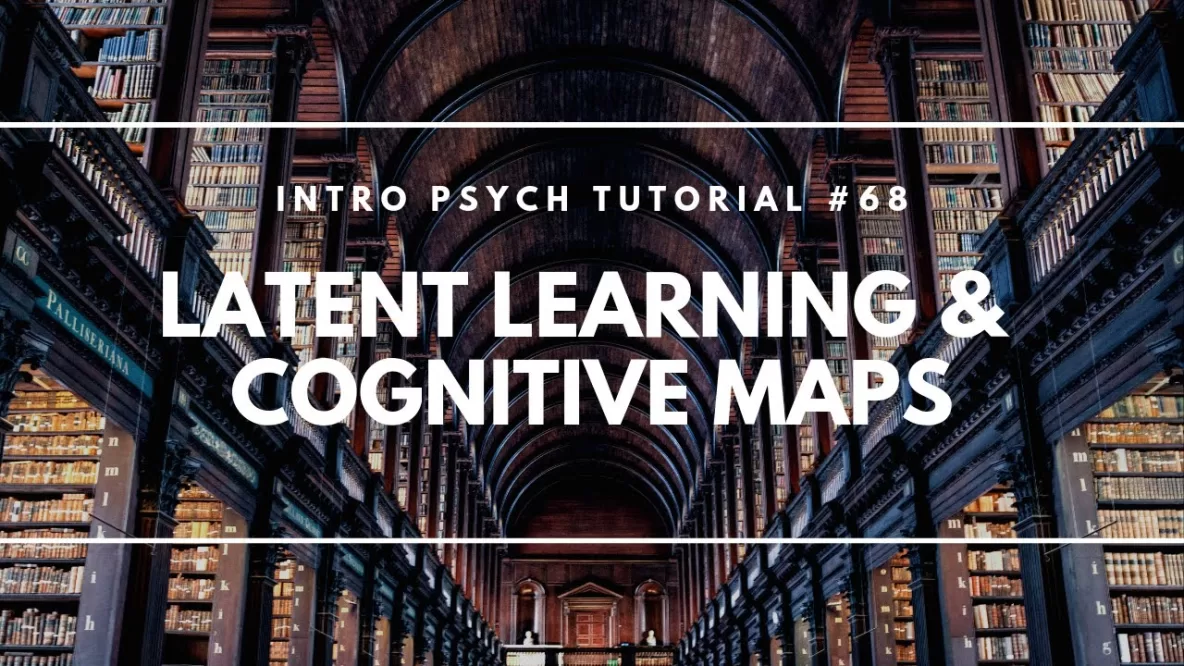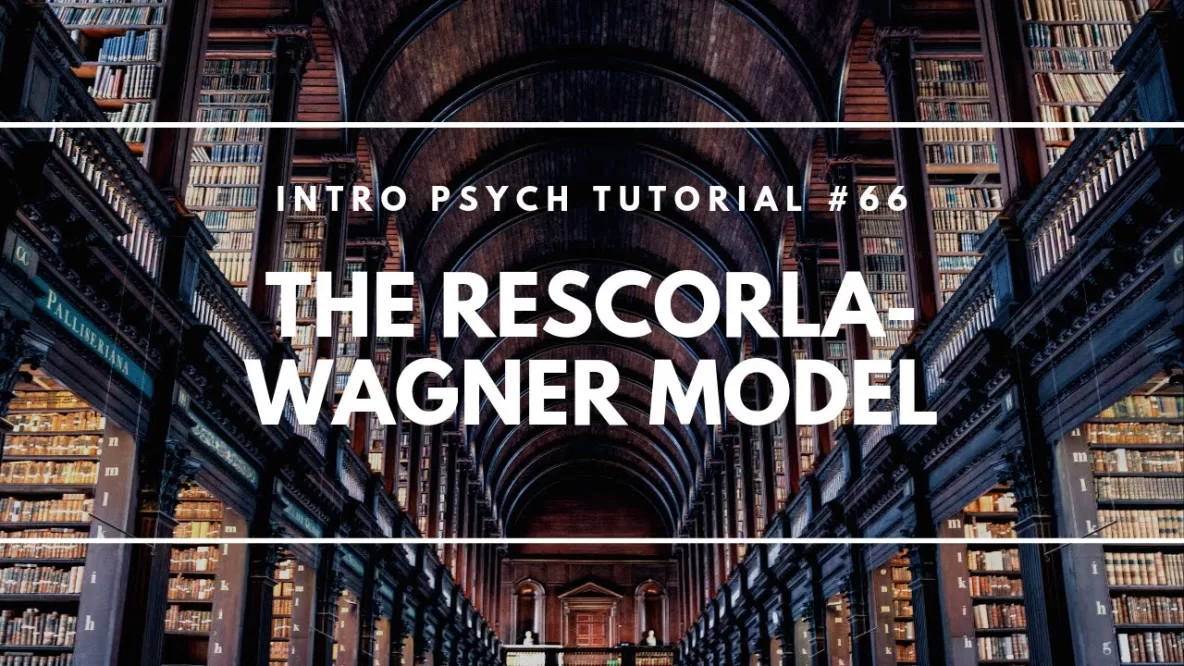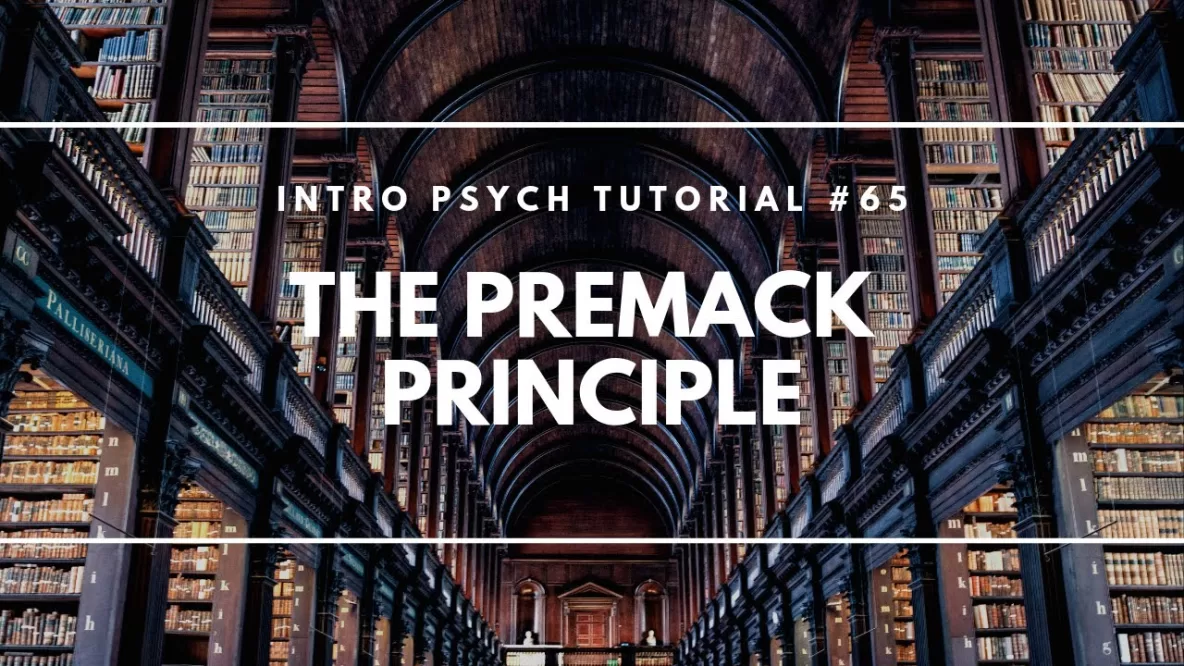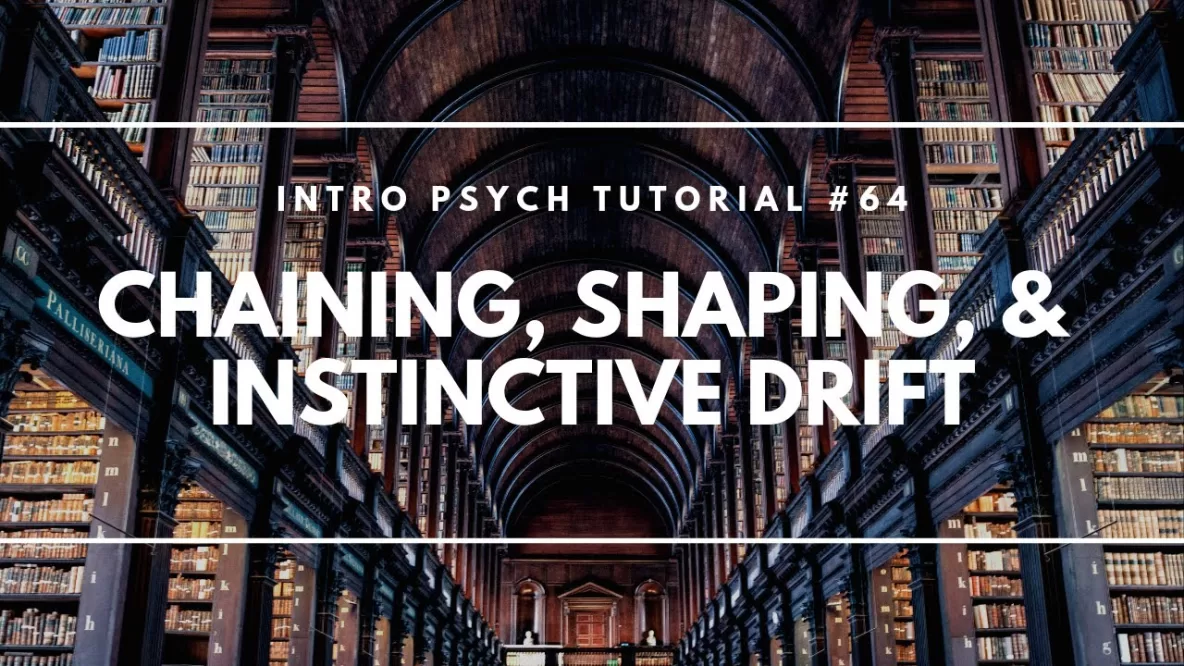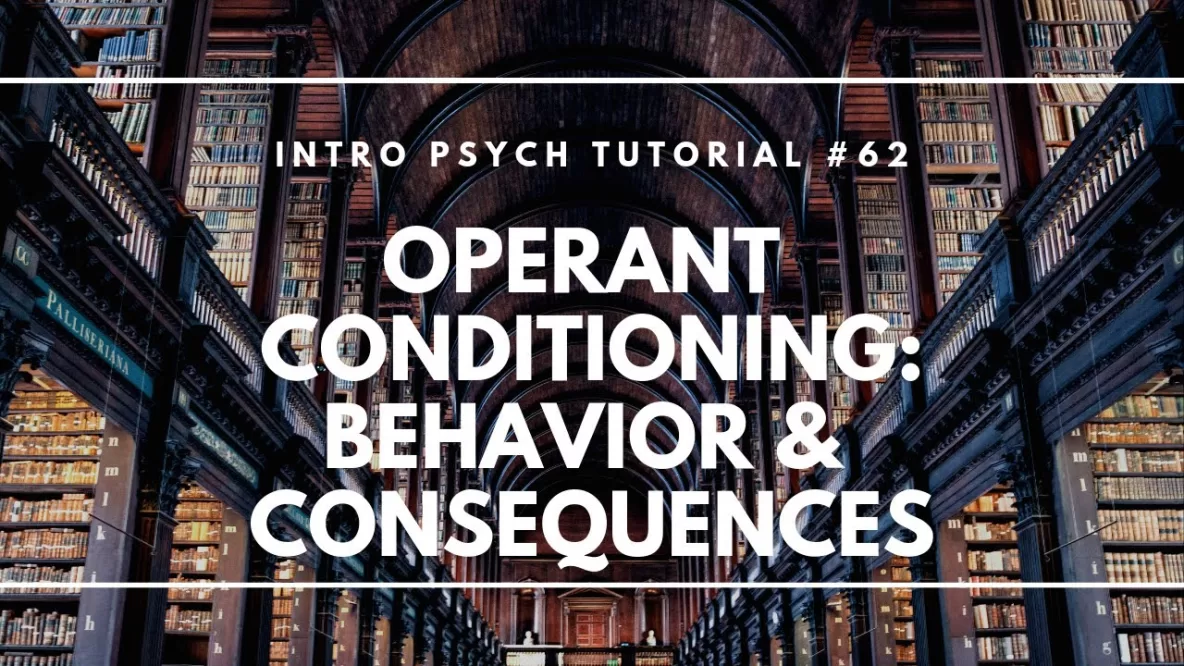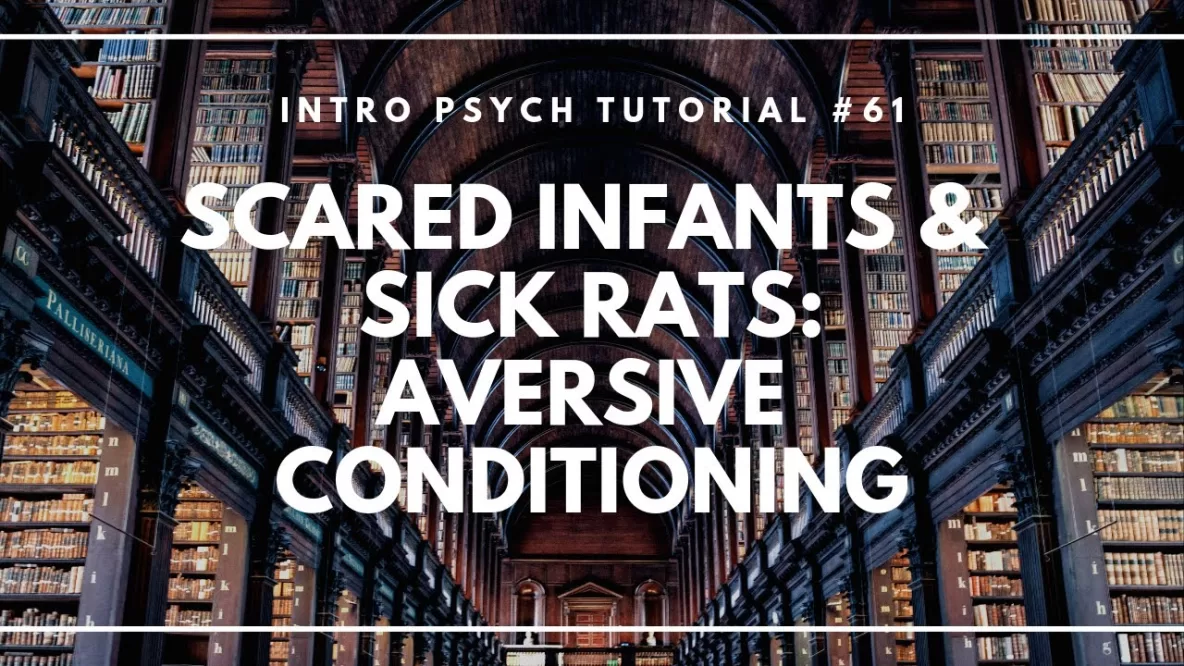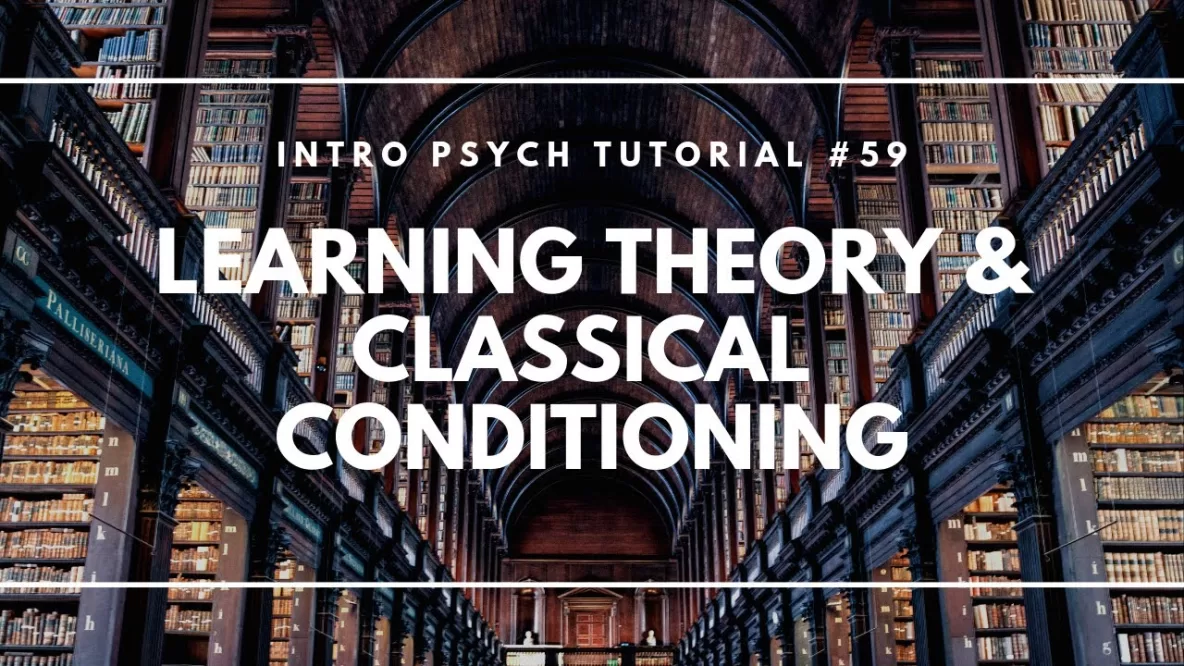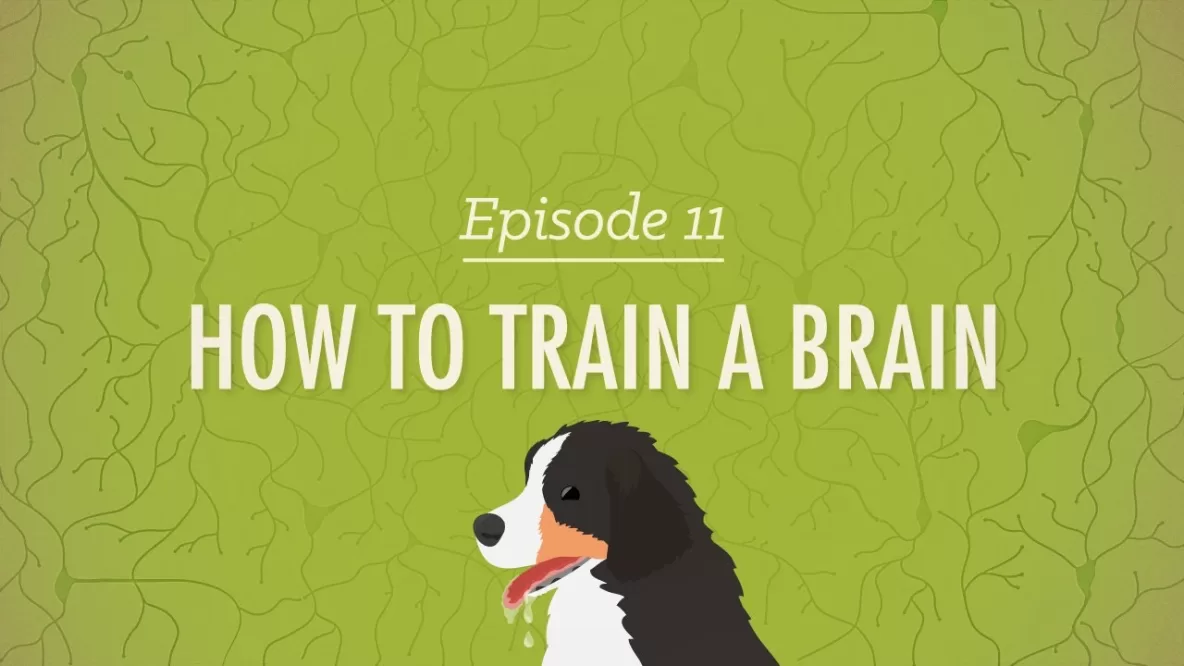Here’s a knowledge organizer I’ve created of the most essential terms for learning theory and behaviorism in an introductory psychology course. These knowledge organizers are designed to help you identify the most important factual knowledge you need to have in … Read More
Latent Learning & Cognitive Maps
In this video I explain the concept of latent learning using two studies conducted by Edward Tolman and colleagues. Latent learning refers to learning that occurs without reinforcement and isn’t demonstrated until an opportunity arises. I also describe the idea … Read More
The Rescorla-Wagner Model
In this video I explain the basic idea behind the Rescorla-Wagner model or contingency model of classical conditioning proposed by Robert Rescorla and Allan Wagner. This model suggests that the reason Pavlov’s dogs associated the bell (rather than some other … Read More
The Premack Principle
In this video I describe the Premack Principle which refers to the idea that behaviors can be high or low probability which in turn means that high probability behaviors can serve as reinforcement for low probability behaviors. Don’t forget to … Read More
Chaining, Shaping, & Instinctive Drift
In this video I describe the how conditioning to be used to train more complex behaviors. This can be accomplished with chaining, which involves linking together previously conditioned behaviors, and shaping, which involves reinforcing successive approximations of a desired behavior. … Read More
Operant Conditioning
In this video I explain the difference between classical conditioning and operant conditioning. Next I explain Thorndike’s work with cats in puzzle boxes which led to his Law of Effect. This approach was greatly expanded by B.F. Skinner’s work on … Read More
Scared Infants and Sick Rats: Aversive Conditioning
In this video I explain two examples of aversive conditioning; John Watson’s “Little Albert” study pairing presentation of a rat with a loud noise, and John Garcia and Robert Koelling’s work on learned taste aversions in rats. Taste aversions demonstrate … Read More
Classical Conditioning
In this video I introduce learning theory and the basic concepts of behaviorism. This begins with the work of Ivan Pavlov on classical conditioning and covers the basic vocabulary for discussing this type of learning including neutral stimulus, unconditioned stimulus, … Read More
Operant Conditioning – Schedules of Reinforcement
By closely monitoring the occurrence of behaviors and the frequency of rewards, Skinner was able to look for patterns. Receiving a reward each time the lever is pressed would be an example of continuous reinforcement. But Skinner also wanted to … Read More
Learning Theory Resources
On this page you’ll find a number of resources for understanding the key concepts of learning theory, including classical conditioning, operant conditioning, observational learning, and more. If I’ve missed a good resource, please share it in the comments section! General … Read More

